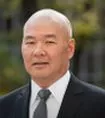Asia, with its distinctive blend of traditional ideals and cutting-edge innovation, is ushering in a progressive approach to sustainability. As the world grapples with the threat of climate change, the continent's response is a kaleidoscope of sustainability efforts across diverse sectors. From high-tech ports in Singapore to the glittering skyscrapers of Tokyo, a story of change, adaptation, and forward-thinking unfolds.
The autonomous vehicle sector epitomizes this. In the realm of technology and business, the integration of AI and autonomous mobility is a rapidly expanding frontier. Amarjit Kaur, a Singapore based partner in Withers' employment team and head of the firm's global diversity, equity and inclusion group, envisions a world where transport reaffirms our commitment to a carbon-neutral earth.
"Autonomous vehicles, with their foundation in AI, encapsulate innovation, sustainability, and efficiency. It's inspiring to see how the industry is evolving, with pioneers putting their heart and soul into developing sustainable transport solutions," reflects Amarjit.
Autonomous vehicles, with their foundation in AI, encapsulate innovation, sustainability, and efficiency.
Amarjit recently had a conversation with Heidi Wyle, Founder and CEO of Venti Technologies. "What struck me about Venti's approach is the power of autonomy to reduce the number of vehicles on the road by 60%, thus reducing emissions and land usage for cars. In addition, Heidi's emphasis on zero-emission autonomous vehicles, particularly in infrastructure-heavy settings like ports and airports, will further reduce pollution. Venti Technologies' mission to accelerate this transition is truly commendable," she notes. "Earlier this year, Venti Technologies raised USD 29 million in a Series A funding to design autonomous vehicles for industrial and logistics hubs, underscoring its immense potential."
Turning real estate green
Gerald Fuiji, a Tokyo based partner in Withers' real estate team and the APAC head of the firm's Global Environment Group, offers his perspective on the growth of green finance in the realm of real estate. "Environmental consciousness is no longer a distant aspiration but a present necessity. And it's the world of real estate that finds itself at the helm of this transformative change," Gerald observes.
This seismic shift isn't merely due to individual corporate conscience. As Gerald highlights, "To promote green finance initiatives and incentivise sustainable practices, governments worldwide have implemented various regulatory measures that continue to evolve."
Such dedication isn't limited to governmental or financial entities. Case in point, landmark transactions like the one Gerald mentions, "Our team at Withers closed Japan's first ever green loan and also Japan's first ever sustainability-linked loan in the data center asset class."
With Japan's commitment to become carbon neutral by 2050, the expectations are clear. As Gerald foresees, "Lenders and borrowers will be incentivized to evidence their bona fide commitment. We should see a substantial increase in green financings in the real estate sector."
Philanthropy supercharges sustainability
In this mosaic of transformation, private fortunes are not just passively observing this evolution; they're actively steering it.
Michelle Chow, Hong Kong based consultant in Withers' private client and tax team, encapsulates the changing dynamics of wealth. "Modern wealth isn't about amassing assets. It's a conduit for change. Today's tycoons are increasingly asking – How can my legacy catalyze a sustainable future?"
We should see a substantial increase in green financings in the real estate sector.
Michelle elaborates, "Today, the affluent are taking a hands-on approach. They're creating their own charitable family foundations and actively participating in the initiatives they support."
"Private wealth isn't just about financial muscle; it's also about the strategic networks, business acumen, and global perspectives that come with it. This holistic approach is vital in modern philanthropy, ensuring that funds are not only donated but are well utilized in ways that create sustainable and scalable impacts."
Erlene Tan, a Singapore based partner in Withers' corporate team, sees philanthropy evolving and emphasizes the transformative power of impact investing.
Highlighting the paradigm shift from 'plain vanilla' charitable donations to sustainable impact investments, she mentions, "The beauty of impact investing is its ability to use the same resources but amplify the outcomes, creating recurring and sustainable impacts."
She draws attention to a noteworthy statistic. Based on a UBS and Campden Wealth Limited report, high net worth families in the Asia Pacific donated an average of US$2.7 million each through their family offices. However, only a quarter of them delved into impact investing. This presents a vast untapped potential.
Erlene emphasizes the unique position of family offices in this space. "Their infrastructure, the wisdom of their founders, and their brand can add immense value to social enterprises, helping them scale and realize their potential."
Addressing a common misconception, Erlene points out, "There's a prevailing notion that impact investments yield limited financial returns. But data from the Global Impact Investing Network paints a different picture, with 67% of impact investors targeting market risk-adjusted rates of return. Moreover, these investments often meet or even exceed expectations in terms of both financial returns and social impact."
Today's tycoons are increasingly asking – How can my legacy catalyze a sustainable future?
Impact investing opens up a world of causes in which philanthropy can crystallize immediate, tangible change. Stacy Choong, who leads Withers' private client and tax practice in Singapore, underscores the role of philanthropy in combating climate change, particularly in Asia.
"Many regions in Asia are at the receiving end of the dire consequences of climate change, with Southeast Asia poised to bear a significant brunt due to its geography," Stacy observes.
For family offices and foundations, the call to action is clear. "Their potential to scale strategies for climate action in Asia is immense," says Stacy, who is also a board member of the Asia Community Foundation, the first Asia-focused independent community foundation, which was recently launched in September 2023.
"While an individual family office might feel its impact is limited, the collective strength of family offices can be formidable. By funnelling resources through alliances and organisations working towards common objectives, they can amplify the influence and impact of their combined wealth towards creating transformative solutions to these pressing global challenges. Most recently, the Monetary Authority of Singapore announced changes to its tax incentive scheme for funds managed by single family offices in Singapore which seek to encourage funds to be applied whether as investments, concessionary capital or outright grants and donations to support climate related investments and blended finance structures. It signals that Singapore, as a financial centre and an international family office hub, is taking the lead to be a part of the solution."
Combating climate change requires a strong and steady collective force, philanthropic capital alone is not sufficient.
Stacy's recognition at the WealthBriefingAsia Wealth For Good Awards 2023 where she was conferred the 'Outstanding Individual Contribution in Wealth for Good Award' stands testament to her commitment and vision. As she aptly sums it up, "Combating climate change requires a strong and steady collective force, philanthropic capital alone is not sufficient. Getting serious attention from various sources of investment capital, whether from family offices or otherwise, would be essential to have a meaningful chance of creating sufficient momentum to move the needle."
Indonesia's innovation hub
Shifting gears to the technology sector, a domain synonymous with modern Asia, Joel Shen, head of Withers' Indonesia practice and Withers Tech Asia, highlights Indonesia's pivotal role, "Tech for sustainability isn't our goal; it's our starting line. By leveraging Indonesia's rich entrepreneurial ecosystem, we're catalyzing a green tech revolution that, while rooted in Asia, has global repercussions." In Joel's vision, countries like Indonesia are not mere adopters of green tech but its pioneering trailblazers.
"Indonesia remains one of the most exciting markets in the world today, especially for technology startups and venture capital investors," says Joel. Venture capital funding has been a critical factor in the growth of its digital economy, with investments reaching US$ 11.96 billion in the first quarter of 20231. As home to 15 of Southeast Asia's unicorns and two decacorns as of 2022, the country is a testament to its burgeoning digital potential.
Today's investors are aligning their portfolios with their principles
Reflecting on the evolving tech landscape, Joel touches upon the rise of sustainable investments. "Today's investors are aligning their portfolios with their principles, seeking out opportunities in green tech and sustainable ventures," says Joel.
Moreover, on the investment dynamics within Southeast Asia, Joel highlights a significant shift. According to a 2023 report by AC Ventures and Boston Consulting Group, the growth opportunity for the green economy in Indonesia is estimated to be valued at US$ 400 billion. Joel notes, "This isn't a mere trend but a clarion call for a sustainable future. We're witnessing a convergence of technology, sustainability, and capital like never before."
The interplay of technology with sustainability is evident in sectors previously unimagined. Herein lies Asia's strength - its ability to merge traditional sectors with innovative solutions, sculpting a future where technological progress doesn't undermine but uplifts environmental imperatives.
Footnote
1. https://tradingeconomics.com/indonesia/foreign-direct-investment
The content of this article is intended to provide a general guide to the subject matter. Specialist advice should be sought about your specific circumstances.






